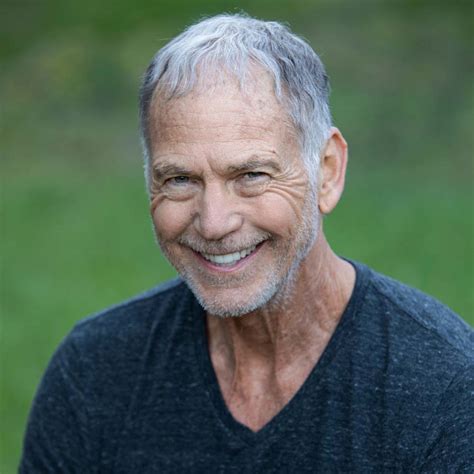A Quote by John Barnes
Most people would accept that we are, to a certain extent, products of our environment.
Quote Topics
Related Quotes
And the bottom line is we are who we are-we look a certain way, we talk a certain way, we walk a certain way. I strut because I’m a supermodel, and sometimes I gallop for fun. When we learn to accept that, other people learn to accept us. So be who you really are. Embrace who you are. Literally. Hug yourself. Accept who you are. Unless you’re a serial killer.
As human beings, we all have reasons for our behavior. There may be people who have certain physiological issues that dictate why they make certain choices. On the whole, though, I think we're dictated by our structure, our past, our environment, our culture. So once you understand the patterns that shape a person, how can you not find sympathy?
We're all products of our environment, and I suspect that strength of will - the feeling, "I'm going to be able to do whatever you put in front of me" - is honed in an environment where not everything is easy. Ironically, growing up in that environment, you don't have a sense of aggrievement or entitlement. You just have a sense of overcoming.
One of the most thoughtless statements, parroted ad nauseam ever since rational concern for our environment exploded into an emotional syndrome, calls Man the only animal that soils its own nest. Every animal soils its nest with the products of its metabolism if unable to move away. Space technology gives us for the first time the freedom to leave our nest, at least for certain functions, in order not to soil it.
I would like to suggest to you that the extent to which government in America has departed from the original design of in habiting the destructive actions of man and invoking a common justice; the extent to which government has invaded the productive and creative areas; the extent to which the government in this country has assumed the responsibility for the security, welfare, and prosperity of our people is a measure of the extent to which socialism has developed here in this land of ours.
We are focused on features, not products. We eliminated future products that would have made the complexity problem worse. We don't want to have 20 different products that work in 20 different ways. I was getting lost at our site keeping track of everything. I would rather have a smaller set of products that have a shared set of features.
'Environment' is not an abstract concern, or simply a matter of aesthetics, or of personal taste - although it can and should involve these as well. Man is shaped to a great extent by his surroundings. Our physical nature, our mental health, our culture and institutions, our opportunities for challenge and fulfillment, our very survival - all of these are directly related to and affected by the environment in which we live. They depend upon the continued healthy functioning of the natural systems of the Earth.
Christianity, like genius, is one of the hardest concepts to forgive. We hear what we want to hear and accept what we want to accept, for the most part, simply because there is nothing more offensive than feeling like you have to re-evaluate your own train of thought and purpose in life. You have to die to an extent in your hunger for faith, for wisdom, and quite frankly, most people aren't ready to die.
It is increasingly obvious that environmentally sustainable solutions to world hunger can only emerge as people eat more plant foods and fewer animal products. To me it is deeply moving that the same food choices that give us the best chance to eliminate world hunger are also those that take the least toll on the environment, contribute the most to our long-term health, are the safest, and are also, far and away, the most compassionate towards our fellow creatures.
I think you've got to accept that certain things are in process that you can't change, that you can't overwhelm. The chaos of our cities, the randomness of our lives, the unpredictability of where you're going to be in ten years from now - all of those things are weighing on us, and yet there is a certain glimmer of control. If you act a certain way, and talk a certain way, you're going to draw certain forces to you.
I think over time the fiscal environment on cigarettes will become different, and the regulatory environment has to differentiate the products. If that is at the expense of cigarettes, so be it - it's not a problem for me. But we need some logical forum where we don't talk ideology but rather we talk about what can really accelerate the conversion. If you do display bans everywhere in the world on cigarettes but you can display IQOS, that's a differentiating measure for me. Then I'm more than willing to accept these measures because they are really conducive to make people switch.
































